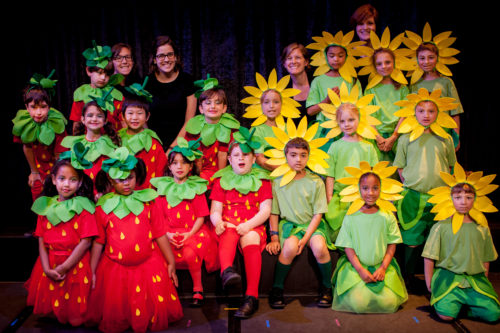Arts and Sciences
Arts and Sciences classes at The River School encourage children to ask questions of themselves and the world around them. Children explore science, visual arts, music, drama, and library. Whether by stretching their muscles or their brains, children experience activities that encourage connections to the classroom curriculum in a fun and engaging way. These hands-on classes are designed to help children increase creativity, critical thinking, and create meaningful personal connections with their peers.
Science
The main goals of the River School Science Program are to understand the basic concepts of the natural and physical environment, to develop the skills, strategies, and habits of mind required for scientific thinking and to relate scientific knowledge to the world outside the school. These goals are achieved through experiential activities that combine the acquisition of knowledge with both inquiry and scientific method. Classes meet in a science room and also spend time in our teaching garden.
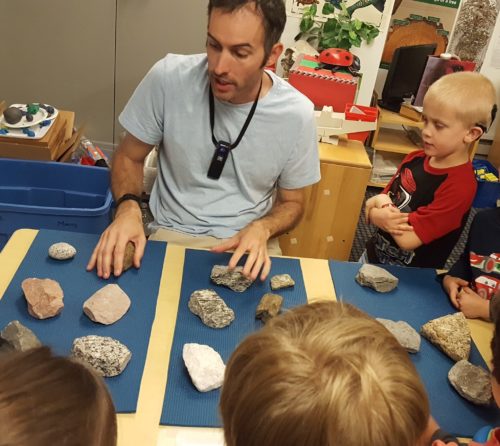
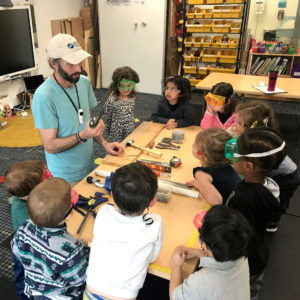
Maker Space
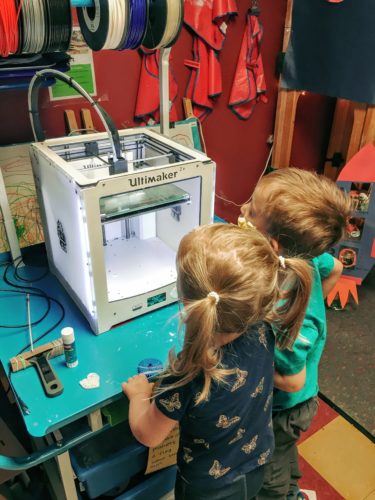
Our Maker Space was added to enhance our STEM education throughout the curriculum. It is here that they can design, create, engineer and build in a hands-on, experiential way. Lego robotics, tools and building sets, design software and digital video/photography are available to each classroom to use. We also have a 3D printer that all the children have used to make many objects from cookie cutters to rockets.
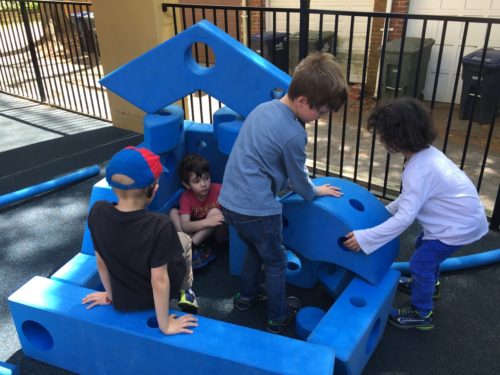
Music
The main goal of The River School’s Music program is to encourage children’s inherent curiosity and natural joy in all things musical. The children have the opportunity to explore singing, movement, storytelling, and become familiar with different instruments. The children are introduced to tempo, major and minor keys, musical notes, and rhythm. Musical themes are drawn from holidays, seasons, American folk heritage, and international and contemporary children’s songs.
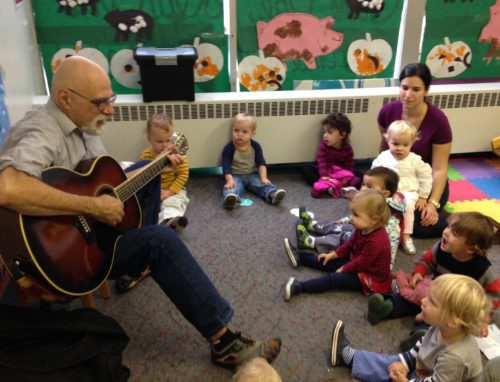
Library
The River School Library program is interactive and the children are encouraged to share ideas, predict outcomes and relate relevant personal experiences. Repetitive, rhythmic and rhyming stories encourage the young children to interact with the books as they help “read” the story. Through author studies, the older children become familiar with many authors and illustrators. Many of the books stimulate the children’s imaginations and help generate new ideas and build vocabulary. The children learn concepts and obtain knowledge and information as they develop ideas through exploring literature.
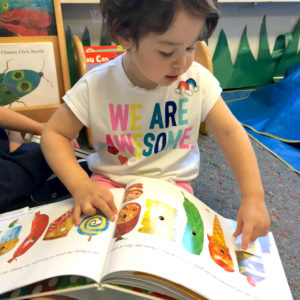
Visual Arts
Our artists in residence use experiences that the children see and know in their everyday environment as starting points for their art. Working independently or collaboratively, our young artists develop and use a visual vocabulary to express their creativity and share their ideas. Children learn about color, form, lines, texture, and mixing materials. They even create clay sculptures that is fired in our kiln. The art they create reflects the ages and stages of the children and is displayed for all to enjoy throughout the school.
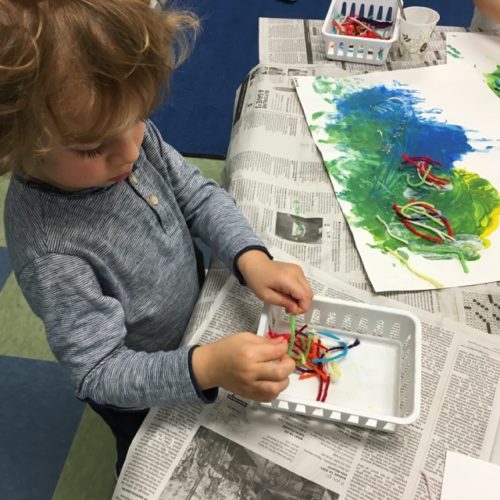
Drama
The main goal of the drama program is to offer children the opportunity to express their ideas and emotions in a creative way. They learn that there are many different ways to tell a story and have the opportunity to try different storytelling methods through movement, mime, puppetry, spoken word and music. Their imaginations are stretched and their vocabulary expanded through the creative activities they participate in each week. These activities also contribute to the students’ social-emotional growth as the children explore their own emotions and how to recognize and respond to the feelings of others.
